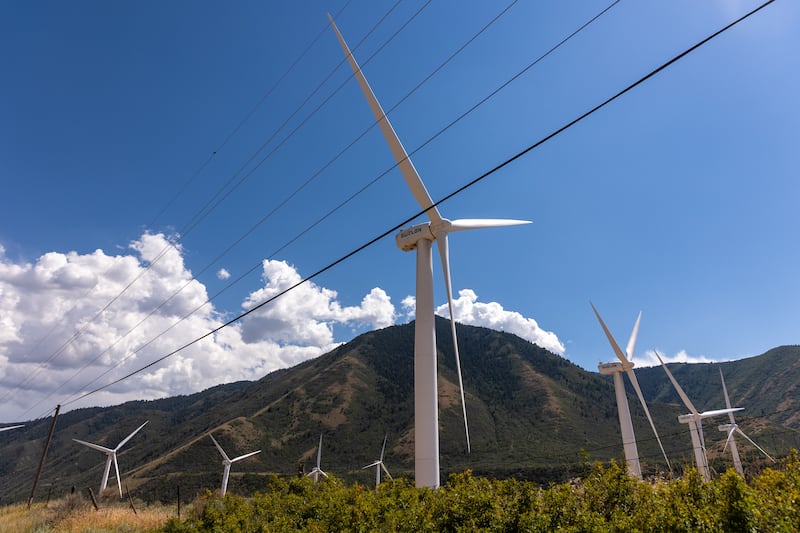Utah Gov. Spencer Cox recently launched the Disagree Better Initiative, encouraging our elected leaders to set an example in how to disagree but still seek bipartisan solutions. The initiative is a breath of fresh air and an overdue reminder that we don’t have to agree on everything in order to work together for the greater good.
This would be encouraging anywhere, but in Utah, it’s special. Already, Utahns have led on making a variety of issues bipartisan — including energy and climate.
Utah’s pioneering tradition and proud heritage as an energy-producing state positions it to be on the forefront of an emerging new energy era. Only one question remains: Will Utah continue to seize the moment and be the conservative state that leads the way, not just in changing the narrative, but in offering concrete solutions?
This summer’s extreme heat is a reminder that America must come together to address the risks of climate change. The two of us, like most Americans, don’t always agree since we represent unique organizations and constituencies. We have differing perspectives on the best path toward addressing our climate challenges. However, what we do agree on is that Utah can and should be a national leader of climate action. We can do this in a way that is good for our economy, our health and our communities. This shared goal is a launchpad for collaboration and progress.
Leadership on climate action means “disagreeing better” and bringing together people from all political and geographic backgrounds to have tough conversations, listen and find common ground. We applaud Utah Congressman John Curtis for doing just that: working with Republican and Democratic members inside and outside of Utah to have those conversations. Curtis will soon be hosting the second annual Conservative Climate Summit in early September at Utah Valley University. The summit presents an opportunity for leaders of all backgrounds to listen, pose ideas and ask hard questions, all in an effort to reduce emissions in every sector of our economy.
Climate leadership also means seizing the opportunities right in front of us. While we do not agree on all facets of federal spending, the fact remains that there are billions of dollars available for clean energy and energy efficiency across the U.S., thanks to several pieces of legislation — most of them bipartisan — over the past few years.
Utah can wisely and responsibly utilize these resources to harness our abundant clean energy resources and upgrade our homes and businesses to save energy. These actions will help secure Utah’s place as an energy powerhouse in the West and play an important role in ensuring the U.S. does not fall behind in the global energy transition.
Additionally, Utah’s primary electric utility, Rocky Mountain Power, recently announced plans for the largest addition of renewable energy and storage in the company’s history, which will yield a cleaner, more resilient electricity grid for all of us. This is Utah’s chance to model what a low-emission, reliable electricity system can look like. We may have some differences of opinion about the timing or implementation of Rocky Mountain Power’s plans, but that is all the more reason to roll up our sleeves and overcome obstacles to help ensure this plan comes to fruition.
Importantly, as we transition our energy supply, coal communities deserve respect, tools and resources to retool their economies and thrive in the new energy era. On this we are in lockstep agreement. These Americans have kept our lights on for decades and cannot be abandoned. Now is the time to reinvest in our energy communities by helping diversify their economies and preparing for the future.
Utah can be a model for what climate leadership by a conservative state looks like. We know that there are social and technological challenges ahead. But Utahns of all backgrounds should be proud that our state has leaders who are seeking to address climate solutions nationally and in our communities. We should embrace this opportunity to lead the nation in forging innovative, compassionate and pragmatic solutions.
Sarah Wright is the CEO of Utah Clean Energy, a nonprofit that advocates for clean energy and climate leadership in Utah. Benji Backer is the president and founder of the American Conservation Coalition, the largest right-of-center youth environmental grassroots organization in the country.

